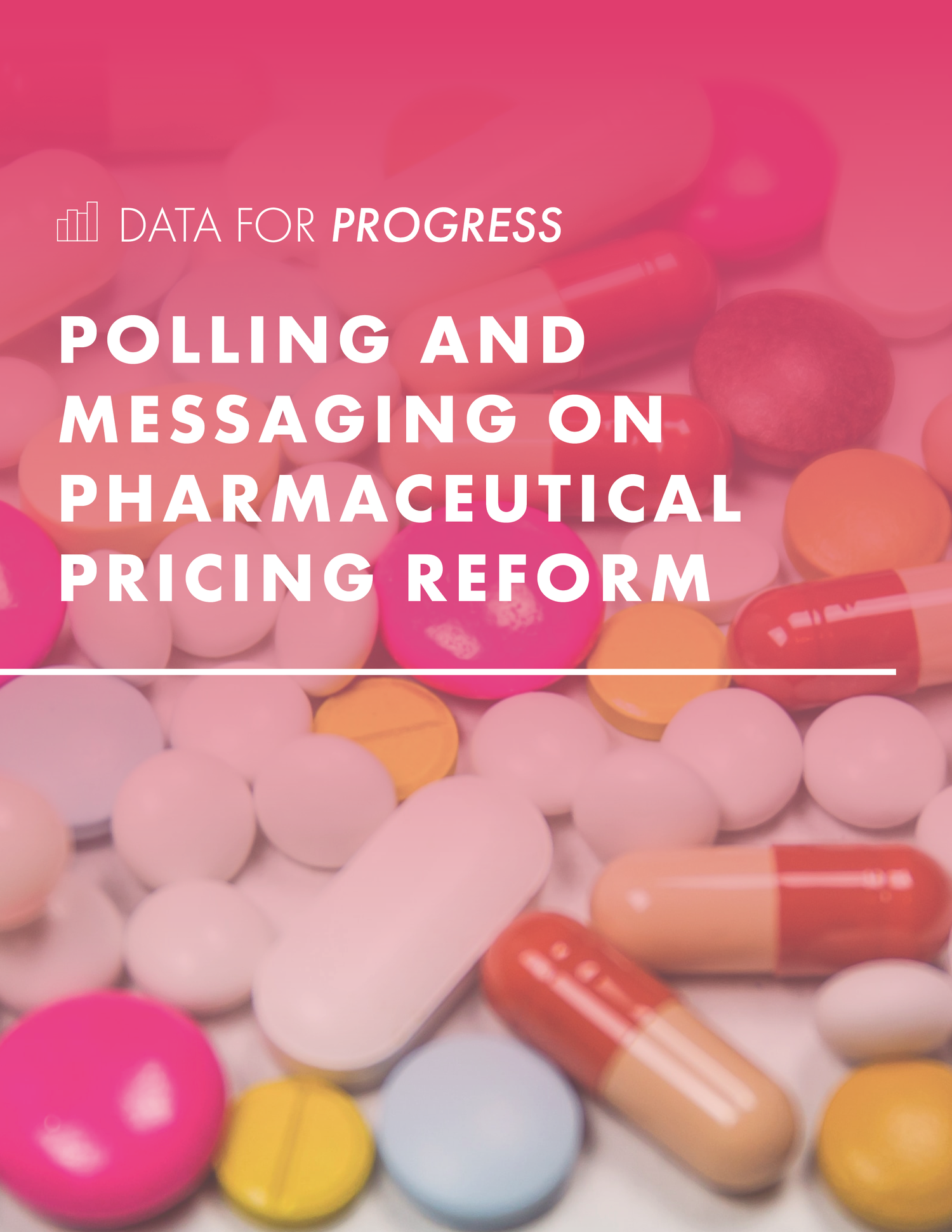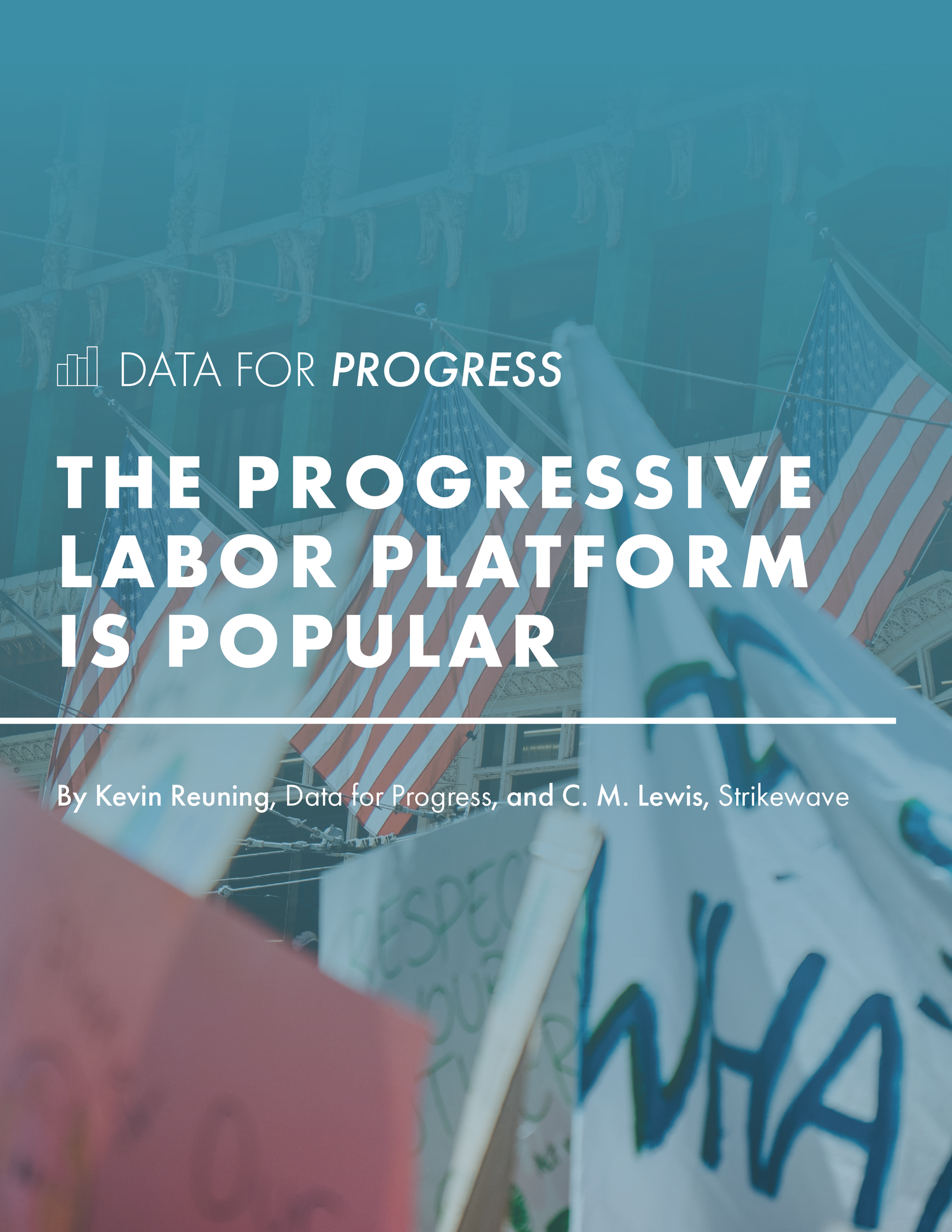Childcare-for-all is a critical part of a progressive platform that is committed to gender, racial, and economic equity. Americans deserve a progressive policy solution that provides higher quality childcare options in every community.
Read MoreRecently, Representative Alexandria Ocasio-Cortez and Senator Bernie Sanders introduced their Green New Deal for Public Housing Act. Here, we test that legislation in an electoral environment, with Republican arguments against it. We find that it has net positive support. We find that that jobs and apprenticeship aspects of the policy are the most popular. These findings are consistent with previous research on Green Housing legislation.
Read MoreThe People’s Justice Guarantee, introduced by Congresswoman Ayanna Pressley, is a comprehensive plan for the federal government to take the lead in rebuilding the criminal legal system so that it is smaller, safer, less punitive, and more humane.
Read MoreSince we launched our Green New Deal scorecard, Democratic candidates — moderates and progressives alike — have released plans that leverage more ambitious emissions targets, a broader array of federal policy tools, and more robust jobs and justice programs.
Read MoreThe Affordable Care Act allowed Americans earning up to 138 percent of the federal poverty line to apply for Medicaid. This has benefited millions of Americans and driven historic reductions in the uninsured rate, but thirteen states continue to refuse to implement Medicaid expansion. This leaves millions of Americans in the coverage gap: too poor to afford private insurance, but unable to qualify for traditional Medicaid because they don’t belong to specific groups (such as people with disabilities) that are categorically eligible.
Read MoreAs gridlock becomes the norm in Congress, the executive branch is an increasingly appealing vehicle for climate policy. We explore public opinion about a wide range of possible executive orders to reduce carbon emissions. We find that these executive orders have broad public support; voters remain supportive even after hearing Republican arguments against executive action.
Read MoreData for Progress and Civis Analytics
When offered a plan to achieve net-zero carbon emissions by 2030 by spending versus 2050, voters prefer 2030.
Voters prefer a jobs guarantee over a carbon tax to fight climate change.
President Donald Trump currently trails the three leading Democratic candidates in the 2020 U.S. presidential election, both nationally and within most of the key battleground states of Michigan, Pennsylvania, Wisconsin, Florida, Arizona, and North Carolina.
Read MoreDemocrats have proposed several major reforms to pharmaceutical pricing in the most recent Congress. Understanding public opinion in this domain is of critical importance to the Democratic platform. In this survey, we subjected Democratic proposals to realistic and clear Republican counterarguments. Voters remained overwhelmingly supportive of the progressive pharmaceutical policies.
Read MoreRecently, Data for Progress and YouGov Blue conducted polling on voters’ attitudes toward Medicare for All, the current healthcare system, and other policies to reform healthcare in the United States. We included items asking voters how they felt about the current system, and about whether they felt the government should be more or less involved in the government.
Read MoreAs the Democratic primary heats up, Democratic presidential candidates have begun sharing their plans to pay for Medicare for All. As part of our most recent survey, we polled some of these ideas alongside a series of items probing American voters’ attitudes toward healthcare, the health insurance industry, and Medicare for All. This memo briefly summarizes the results.
Read MoreIn 2017, firearms killed 39,773 Americans. This is more than the population of Atlantic City. Despite this clear and overwhelming tragedy, the issue of guns is often called a “third rail” in American politics, with a dominant media narrative suggesting that the issue “divides” Americans.
Read MoreAs Democrats move forward with legislation on prescription drug costs, their central message should be a moral case against pharmaceutical industry profits and the idea that patents are a privilege the industry has abused.
Read MoreFrom 9/9-9/13, Data for Progress polled a sample of all registered Democrats via text-to-web across NY-16 using a commercial voter file. Data for Progress surveyed 578 registered Democratic in-district respondents. Respondents who said they were “definitely not” going to vote in the upcoming congressional primary were excluded. The following results use a propensity score weighting method that weights on a number of political and demographic characteristics. The margin of error is +/- 5.7% with a 95% confidence interval. These results should be looked at as the broadest interpretation of the electorate. There are 250,000 registered Democrats in the 16th, and only 30,000 of them voted in last year’s Congressional primary.
Read MoreData for Progress recently fielded a survey of registered voters, and posed a series of questions about support for ambitious housing policy reform with an emphasis on equity and sustainability. We find that, even accounting for partisan identification, there is a clear appetite for green housing reform in the United States.
Read MoreIn the nearly two decades since the attacks of September 11, 2001, the United States has dramatically increased its global military footprint in the name of national security. This has included large-scale ground wars in Iraq and Afghanistan, targeted air strikes, covert operations across the Middle East and North Africa, hundreds of military bases across the world, and a heavy pipeline of arms sales. This “War on Terror” posture has carried a massive price tag, both in terms of dollars spent and lives lost.
Read MoreNearly two-thirds of Americans, including a majority on both sides of the aisle, want the federal government to ensure that school lunches are fresh, healthy, prepared onsite, and locally grown. This polling indicates strong support for overhauling meal programs in America’s schools, which would create structural change in the country’s food economy and lead to a number of benefits for schoolchildren, farmers, and workers.
Read MoreData for Progress surveyed key components of Bernie Sanders’s “Workplace Democracy Plan” and Elizabeth Warren’s “Empowering American Workers and Raising Wages” and found that the platform’s policies are broadly supported by voters. The policies tend to have broad support from Democrats, but many also have net positive support among independents and Republicans. In addition, we find that there is a potential key bloc of voters that either did not vote in 2016 or voted for Trump that support components of the platform, making them potential targets for 2020 election efforts. One caveat is important: many of these policies also showed high rates of voters having no strong opinion, meaning the numbers could change.
Read More



















